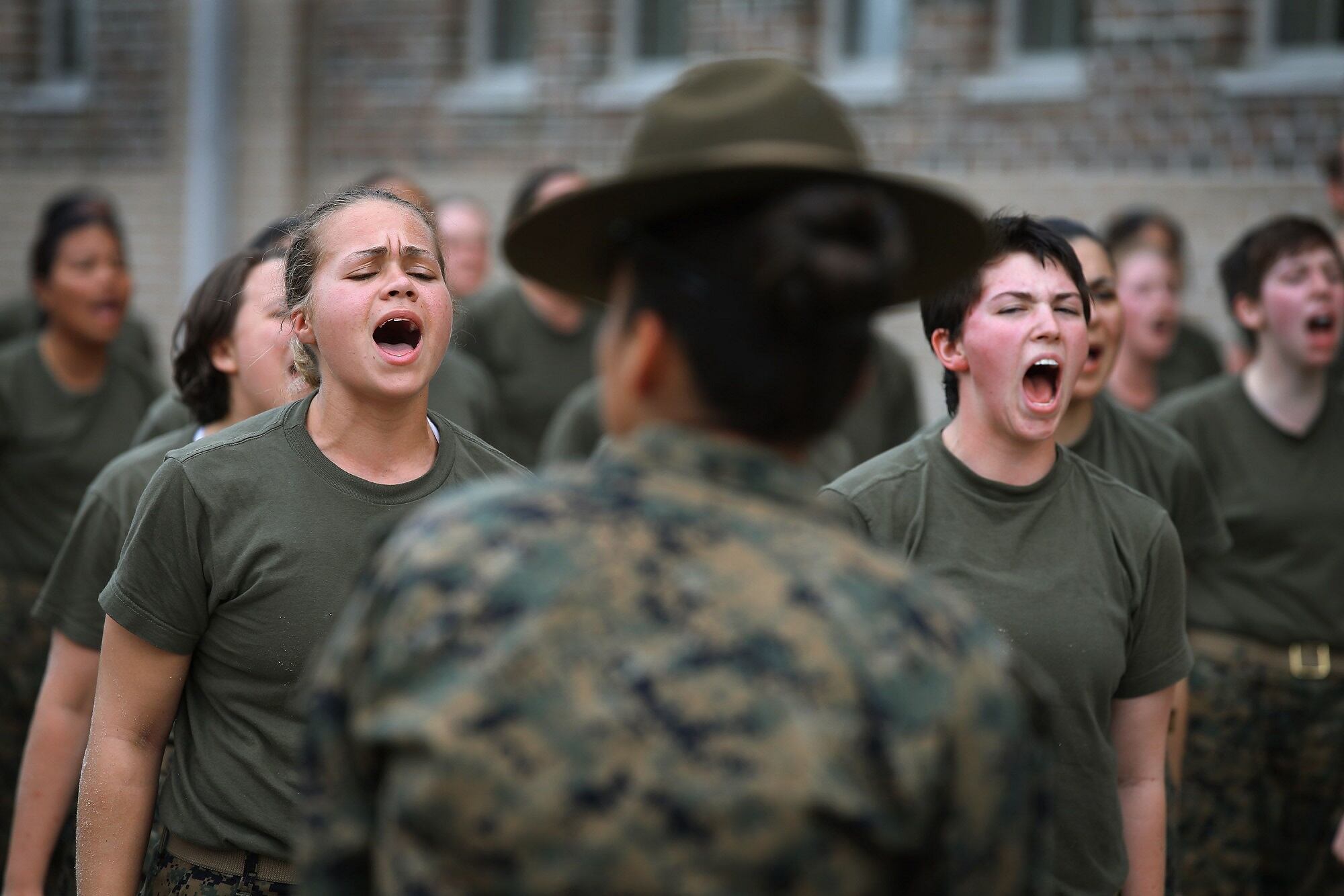While every other service branch of the U.S. military has gender-integrated boot camp, in the Marine Corps for the most part men and women still train separately.
The Corps may soon be forced to change the way it trains however, with a provision in the final conference version of the 2020 National Defense Authorization Act, agreed on in a bipartisan compromise late Monday night, that would require the Marine Corps to integrate recruit training at both recruit depots.
Marine Corps Recruit Depot Parris Island, South Carolina, would have five years to comply and the depot in San Diego would have eight years, according to the bill.
Lawmakers in the House of Representatives are expected to vote on the authorization bill Wednesday, with a Senate vote expected early next week.
California Democrat Rep. Jackie Speier introduced the provision earlier in 2019.
The National Defense Authorization Act has passed Congress each of the past 58 years.
Maj. Joshua C. Benson, spokesman with Marine Corps Combat Development Command, told Marine Corps Times Tuesday the Corps will not be commenting until the bill is signed into law.
Recruit training
Historically Parris Island, South Carolina, has been the only Marine boot camp location to receive female recruits.
The island is home to the 4th Recruit Training Battalion ― the only recruit battalion dedicated to training female Marines ― which has seen at least three gender-integrated recruit companies in 2019.
Those companies were made up of five all-male platoons and one all-female platoon.
The platoons shared the same barracks building, but had its own squad bays where recruits slept, showered and participated in platoon and individual training, Capt. Bryan McDonnell, a spokesman for the Marine Corps recruit depot at Parris Island, South Carolina, told Marine Corps Times in an Oct. 30 email.
Since most of recruit training is done at the platoon level, the recruits would still spend most of their time at training segregated by gender.
But for morning physical training, attempting the obstacle course or the many hours of classroom study that the entire company participates in, men and women would be training side-by-side.
Previous Marine Corps leaders have maintained that men and women do better at recruit training when they are separated.
"Our drill instructors stay with their recruits 24 hours a day, seven days a week the entire time they are there,” former Marine Commandant Gen. Robert B. Neller told reporters at a televised Pentagon briefing in May 2018. “So I am not considering having men and women live together in an open squad bay.”
Current Marine Corps leaders have been open to future gender-integrated companies at recruit training.
During his confirmation hearing, Marine Commandant Gen. David Berger told lawmakers the first company to be integrated, India Company, 3rd Recruit Training Battalion, “went great.”
As part of its effort to integrate training, in November the Marine Corps ordered a study to investigate the changes necessary to integrate recruit training.
The study, which has a due date of Feb. 1, 2021, will look into both the fiscal and potential “legacy” cost to the Marine Corps in segregated training vs. integration at the company level. The requested study does not require a look at full integration with male and female recruits sharing the same platoon.
Parris Island, South Carolina, already has some more groundwork for integrated recruit training, while San Diego has an even greater transition ahead.
Marine Corps Recruit Depot San Diego, tucked in next to the busy San Diego International Airport, has long been the site where most men recruited west of the Mississippi River have gone to train, and has never trained any women seeking to earn the title Marine.





